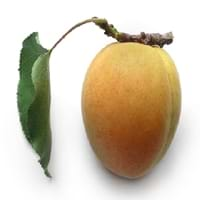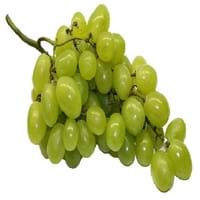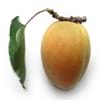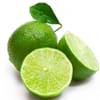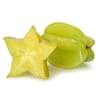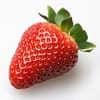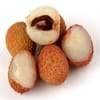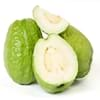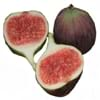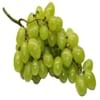Health Benefits
Asthma treatment, Cancer prevention, Controls blood pressure, Digestive aid, Heart care, Maintains hormonal balance, Regulation of heart rate, Skin cleansing, Skin rejuvenation
Cancer prevention, Kidney stone treatment, Prevents constipation, Treatment of alzheimer's disease
General Benefits
Boosts immune system, Controls blood pressure, Digestive aid, Eye care, Maintains healthy cholesterol level, Strengthens bones
Digestive aid, Improves eye vision, Maintains healthy cholesterol level, Treatment of migraine
Skin Benefits
Hydrates skin, Reduces wrinkles, Treatment of dark spots, Treatment of skin diseases
Anti-aging benefits, Heals sunburn, Skin rejuvenation, Treatment of dark spots
Hair Benefits
Good conditioner, Regulates hair growth, Rejuvenates scalp, Softening mask, Treatment of dandruff
Prevents hair loss, Regulates hair growth, Treatment of dandruff
Allergy Symptoms
Abdominal cramps, Anaphylaxis, Breathing difficulty, Diarrhea, Itching of mouth, Itching sensation in throat, Swelling of mouth, tongue or lips, Vomiting, Wheezing
Anaphylaxis, Asthma, Breathing difficulty, Coughing, Drop in blood pressure, Hives, Skin rash, Stuffy nose, Swelling of mouth, tongue or lips, Wheezing
Side Effects
Dizziness, Headache, Nausea, Vomiting
Allergic reaction, Skin rash, Might slow down the process of blood clotting
Best Time to Eat
Best if taken as a breakfast (or empty stomach), As a snack in the late afternoon, Don't consume at night and before bed, Eat the fresh ones, avoid mixing with any other foods, don't eat after meal.
As a snack in the late afternoon, Don't consume at night and before bed, Eat the fresh ones, avoid mixing with any other foods, don't eat after meal., Morning time (before lunch)
Vitamin B5 (Pantothenic Acid)
Vitamin C (Ascorbic Acid)
Vitamin K (Phyllochinone)
Calories in Fresh Fruit with Peel
Calories in Fresh Fruit without Peel
Not Available
Not Available
Calories in Frozen Form
Not Available
Season
Summer
Autumn, Summer
Varieties
Gold Cot, Tilton, Wenatchee, Goldbar, Gold Kist, Tomcot, Harcot, Brittany Gold, Harglow, Hunza, Moorpark, Patterson and Royal Rosa
Cabernet Sauvignon, Merlot, Pinot Noir, Syrah/Shiraz and Zinfandel
Color
Orange, Yellowish-orange
Green, Red
Inside Color
Yellow
Light Green
Taste
Smooth, Sweet
Sweet-Sour
Origin
China
Western Asia, Central Europe
Soil Type
Well-drained
Clay loam, Sandy loam
Climatic Conditions
Dry, Hot
Warm
Facts about
- 9 Jan is considered as the National Apricot Day.
- Apricots have been around for more than 4000 yrs.
- In latin, the meaning of apricot is 'precious'.
- 95% of apricots in the US are produced by California.
- If left alone, a grapevine can spread 50 feet and even more.
- There are more than 8,000 varieties of grape worldwide.
- They are available in 7 different colors: red, green, white, black, purple, blue and golden.
Top Producer
Turkey
Spain
Other Countries
Algeria, Egypt, France, Iran, Italy, Morocco, Pakistan, Spain, Uzbekistan
Argentina, Armenia, Australia, Chile, France, Iran, Italy, Portugal, Romania, Turkey, United States of America
Top Importer
United States of America
United States of America
Top Exporter
France
Chile
Botanical Name
Prunus armeniaca
Vitis vinifera
Synonym
Not Available
Not Available
Subkingdom
Tracheobionta
Tracheobionta
Division
Magnoliophyta
Magnoliophyta
Class
Magnoliopsida
Magnoliopsida
Species
P. armeniaca
Vitis vinifera
Difference Between Apricot and Grape
We might think that Apricot and Grape are similar with respect to nutritional value and health benefits. But the nutrient content of both fruits is different. Apricot and Grape Facts such as their taste, shape, color, and size are also distinct. The difference between Apricot and Grape is explained here.
The amount of calories in 100 gm of fresh Apricot and Grape with peel is 48.00 kcal and 69.00 kcal and the amount of calories without peel is Not Available and Not Available respectively. Thus, Apricot and Grape belong to Low Calorie Fruits and Low Calorie Fruits category.These fruits might or might not differ with respect to their scientific classification. The order of Apricot and Grape is Rosales and Vitales respectively. Apricot belongs to Rosaceae family and Grape belongs to Vitaceae family. Apricot belongs to Prunus genus of P. armeniaca species and Grape belongs to Vitis genus of Vitis vinifera species. Beings plants, both fruits belong to Plantae Kingdom.
